Humans
Sign up for our newsletter
We summarize the week's scientific breakthroughs every Thursday.
-
 Psychology
PsychologyErasing stigma needed in mental health care
Social forces drive those in need away from mental health care.
By Bruce Bower -
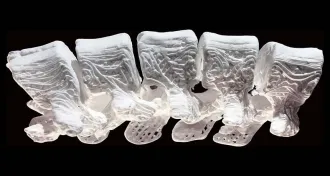 Materials Science
Materials ScienceSuperflexible, 3-D printed “bones” trigger new growth
New ultraflexible material could be the future of bone repair, but awaits human testing.
-
 Health & Medicine
Health & Medicine50 years ago, noise was a nuisance (it still is)
In 1966, scientists warned of the physical and psychological dangers of a louder world.
-
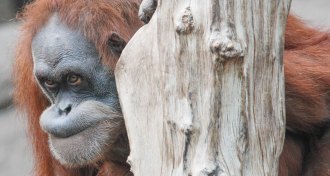 Psychology
PsychologyChimps, other apes take mind reading to humanlike level
In a first, apes show that they understand when others hold false beliefs.
By Bruce Bower -
 Science & Society
Science & SocietySometimes failure is the springboard to success
Editor in chief Eva Emerson discusses scientific discoveries that resulted from failures large and small.
By Eva Emerson -
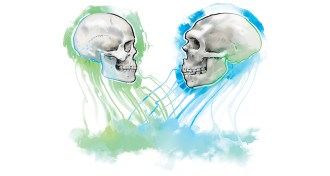 Humans
HumansAnimal hybrids may hold clues to Neandertal-human interbreeding
The physical effects of interbreeding among animals may offer clues to Neandertals’ genetic mark on humans.
By Bruce Bower -
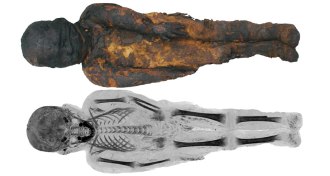 Tech
TechCT scans show first X-rayed mummy in new light
An ancient Egyptian child became the first mummy to be X-rayed in 1896. Today, CT scans reveal new insights into the child’s life — and death.
-
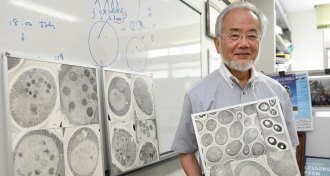 Health & Medicine
Health & MedicineDeciphering cell’s recycling machinery earns Nobel
The 2016 Nobel Prize in physiology or medicine was awarded to Yoshinori Ohsumi for his work on autophagy, a process that cells use to break down old parts for future use.
By Meghan Rosen and Laurel Hamers -
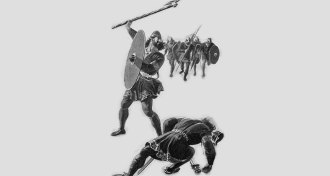 Anthropology
AnthropologyBig Viking families nurtured murder
Vikings in Iceland got a murderous boost from having large extended families.
By Bruce Bower -
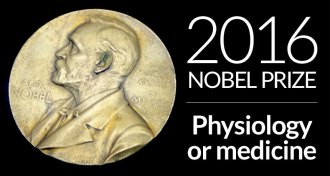 Health & Medicine
Health & MedicineJapanese scientist wins Nobel for revealing secrets of cellular recycling
Discovering how cells act as mini recycling plants wins the Nobel Prize in physiology or medicine for Japanese cell biologist Yoshinori Ohsumi.
-
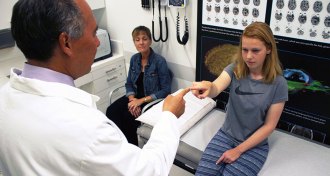 Health & Medicine
Health & MedicineDon’t cocoon a kid who has a concussion
Parents should fight the urge to limit kids’ activities after a concussion.
-
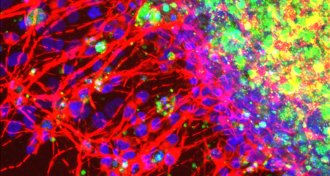 Health & Medicine
Health & MedicineZika virus infects cells that make bone, muscle in lab tests
Zika virus infects embryonic cranial cells in lab-grown minibrains, potentially altering face and skull shape and brain development, and maybe even contributing to microcephaly.
By Meghan Rosen